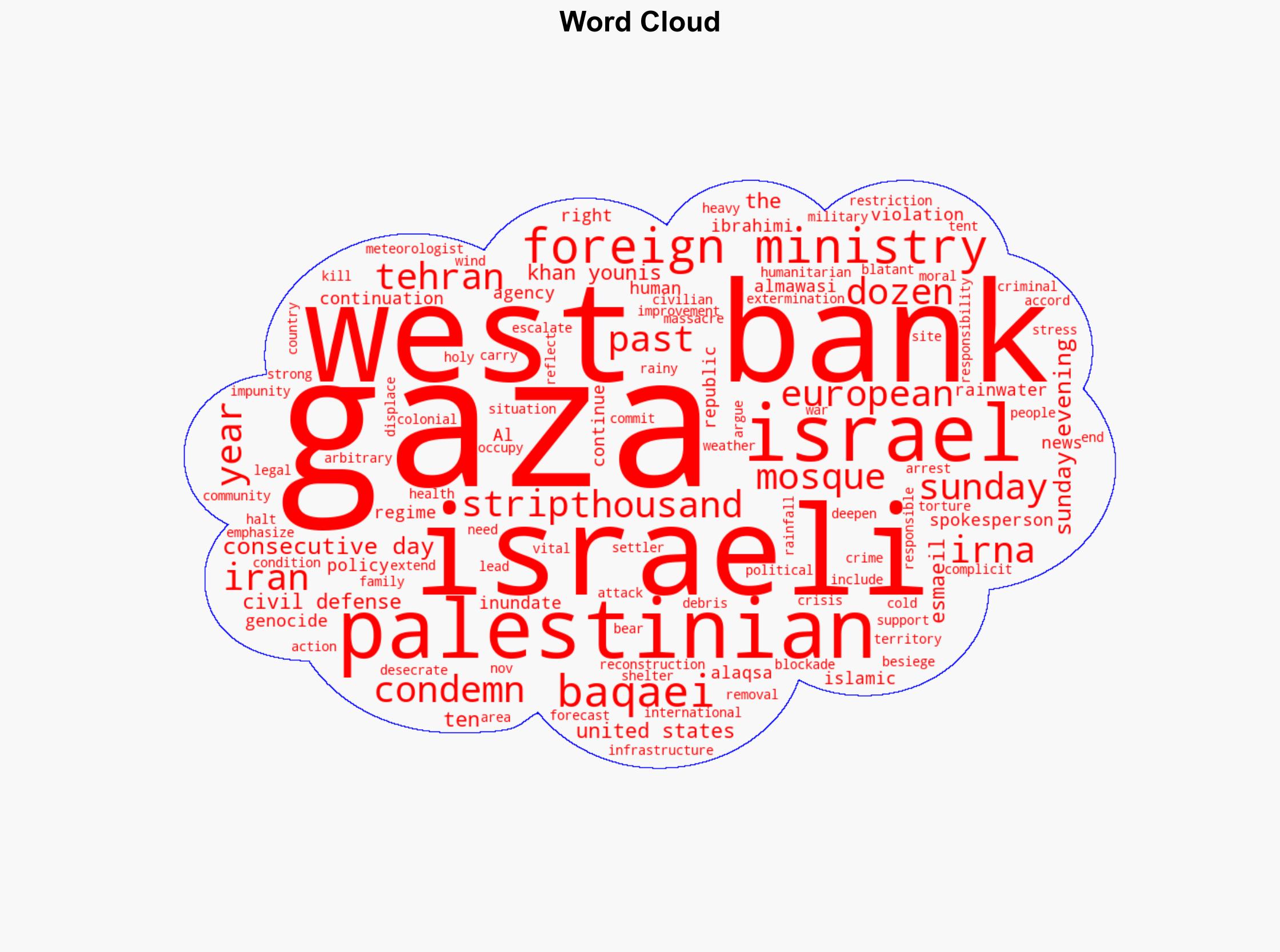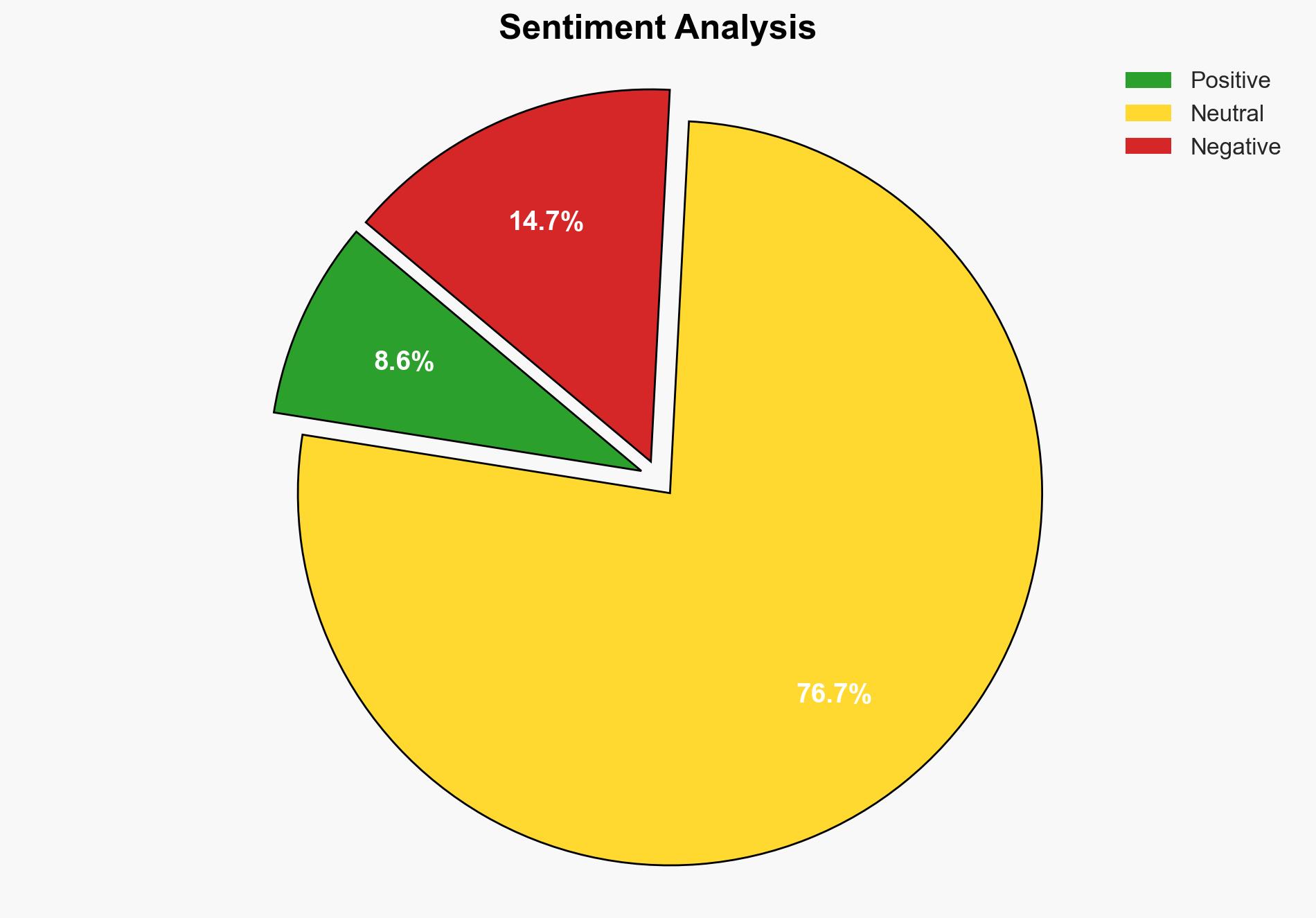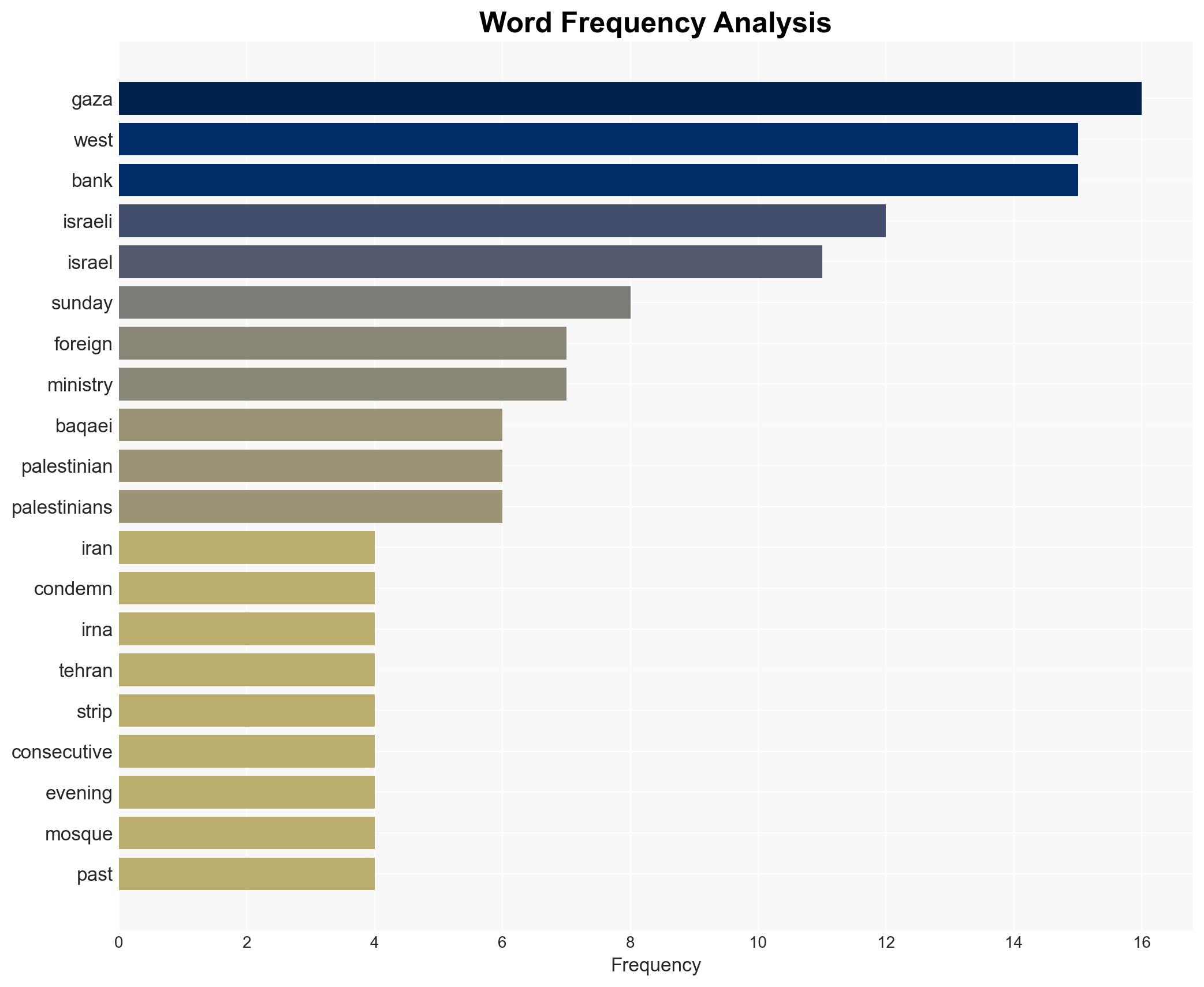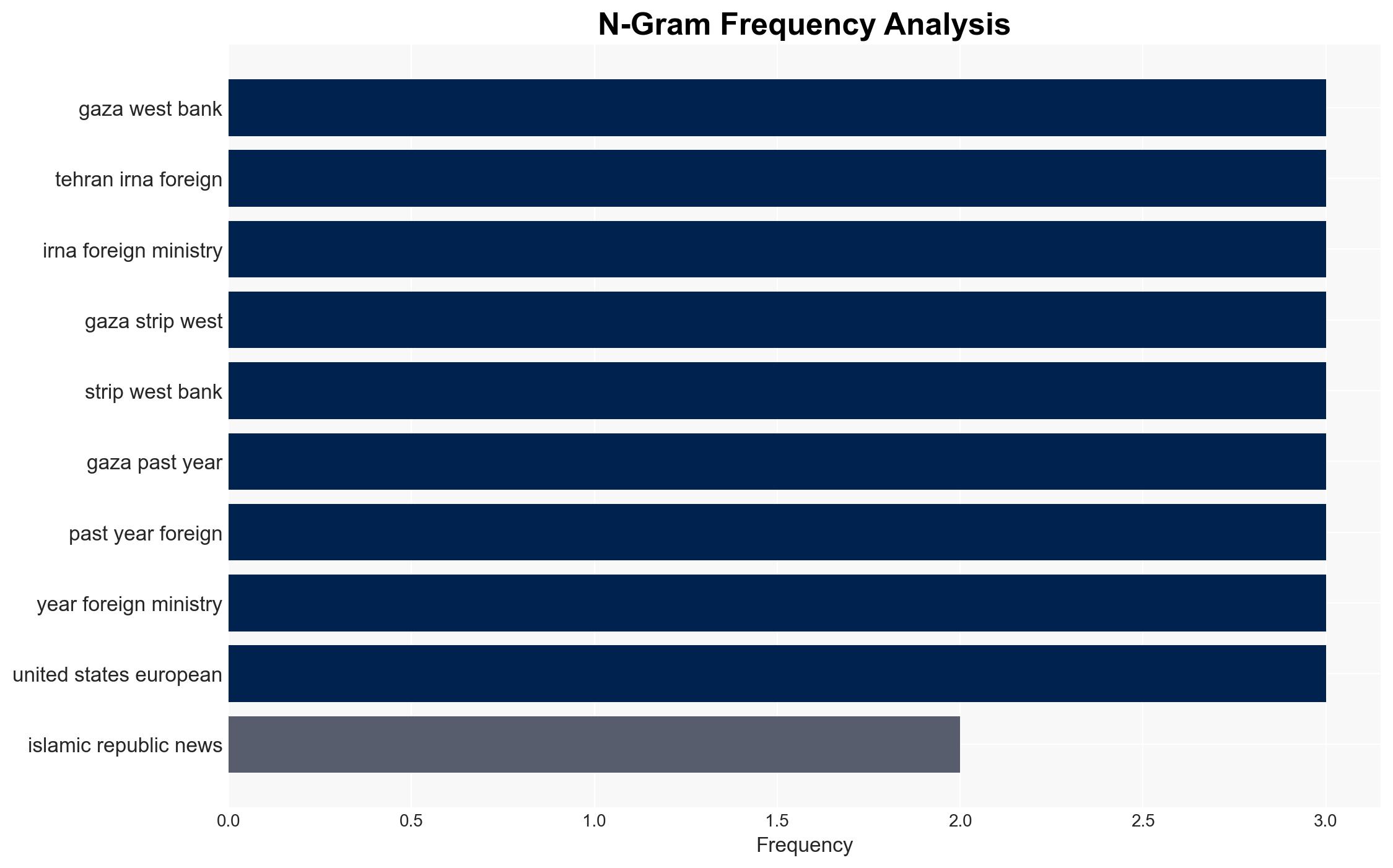Iran condemns continued Israeli human rights violations in Gaza and West Bank – Globalsecurity.org
Published on: 2025-11-17
AI-powered OSINT brief from verified open sources. Automated NLP signal extraction with human verification. See our Methodology and Why WorldWideWatchers.
Intelligence Report:
1. BLUF (Bottom Line Up Front)
With a moderate confidence level, the most supported hypothesis is that Iran’s condemnation of Israeli actions in Gaza and the West Bank is a strategic move to bolster its regional influence and position itself as a defender of Palestinian rights. Recommended actions include monitoring Iran’s diplomatic engagements and regional alliances to anticipate shifts in geopolitical dynamics.
2. Competing Hypotheses
Hypothesis 1: Iran’s condemnation is primarily a diplomatic strategy to enhance its influence in the Middle East by positioning itself as a champion of Palestinian rights and rallying regional support against Israel.
Hypothesis 2: Iran’s statements are primarily aimed at domestic audiences to consolidate internal support by focusing on a common external adversary, thereby diverting attention from domestic issues.
Hypothesis 1 is more likely due to Iran’s historical pattern of using regional conflicts to expand its influence and the strategic importance of the Palestinian issue in garnering support from other Middle Eastern nations.
3. Key Assumptions and Red Flags
Assumptions include the belief that Iran’s statements are not solely rhetorical and that they have tangible strategic objectives. A red flag is the potential for Iran to exaggerate or manipulate information to serve its narrative. Deception indicators include the possibility of Iran using these statements to mask other regional activities or intentions.
4. Implications and Strategic Risks
The primary risk is the potential for increased regional tensions, which could escalate into broader conflicts involving Iran, Israel, and their respective allies. This situation could also lead to heightened cyber warfare, economic sanctions, and informational campaigns. There is a risk of Iran leveraging this narrative to strengthen ties with non-state actors in the region, potentially destabilizing neighboring countries.
5. Recommendations and Outlook
- Monitor Iran’s diplomatic activities and alliances to identify shifts in regional power dynamics.
- Engage in diplomatic dialogues with regional partners to mitigate tensions and encourage peaceful resolutions.
- Best-case scenario: Diplomatic efforts lead to de-escalation and renewed peace talks between Israel and Palestine.
- Worst-case scenario: Escalation into a broader regional conflict involving multiple state and non-state actors.
- Most-likely scenario: Continued rhetorical exchanges without significant changes in the status quo, but with increased regional polarization.
6. Key Individuals and Entities
Esmaeil Baqaei – Foreign Ministry Spokesperson of Iran.
7. Thematic Tags
Structured Analytic Techniques Applied
- Cognitive Bias Stress Test: Expose and correct potential biases in assessments through red-teaming and structured challenge.
- Bayesian Scenario Modeling: Use probabilistic forecasting for conflict trajectories or escalation likelihood.
- Network Influence Mapping: Map relationships between state and non-state actors for impact estimation.
Explore more:
National Security Threats Briefs ·
Daily Summary ·
Support us
·





